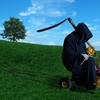Which was a result of the conflict between Spain and England during the late 1500s? A. Spain focused on defeating England in a European land war, and the cost kept the Spanish from expanding their empire in North America. B. English monarchs chose to wait until they could peacefully settle their arguments with Spain before attempting to establish an empire. C. The Spanish sent the fleet of ships known as the Armada to invade England, and the Armada's success kept England from exploring and colonizing for another century. D. The Spanish sent the fleet of ships known as the Armada to invade England, but the English defeated the Armada and ended Spain's' dominance of the seas.
Answers (1)
Know the Answer?
Not Sure About the Answer?
Find an answer to your question 👍 “Which was a result of the conflict between Spain and England during the late 1500s? A. Spain focused on defeating England in a European ...” in 📗 History if the answers seem to be not correct or there’s no answer. Try a smart search to find answers to similar questions.
Search for Other Answers
You Might be Interested in
What approach did Great Britain attempt to use to avoid the conflict with Germany before WW2 began?
Answers (1)
After Benito Mussolini became the dictator of Italy, he became involved with another nations civil war. Name the country.
Answers (1)
What affected the American economy immediately after world war 1? a) increase in international trade b) demobilization of the military c) rise in the demand for consumer goods d) tariffs placed by European nations on American imports
Answers (1)
Which of the following revolutions had a strong effect on world war 1? A. The American revolution B. The French Revolution C. The agricultural revolution D. The industrial revolution
Answers (1)
The ancient Egyptians adorned harps with gold and silver. True or False?
Answers (1)
New Questions in History
List the five basic of all government and explain why each ome is important
Answers (1)
What were the unique customs of the coahuiltecan
Answers (1)
How does the industrialization and labor affects the world that you live in today?
Answers (1)
How is Caliph defined? a. defender of the faithful c. ruler of the faithful b. commander of the faithful d. the one chosen by God
Answers (2)
Did andrew jackson's removal policy benefit native americans?
Answers (1)

